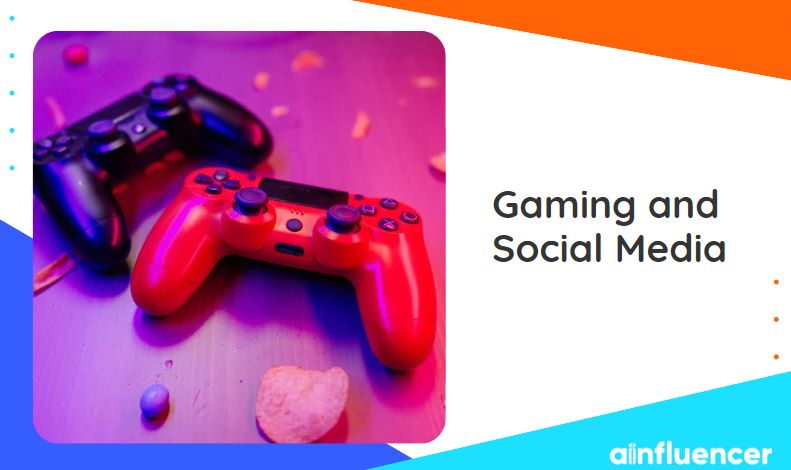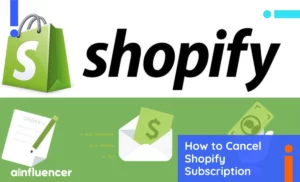In the vast landscape of digital connections, the fusion of gaming and social media has sparked a revolution that transcends traditional entertainment boundaries. This convergence has not only redefined community engagement but also reshaped content creation, making gaming a pivotal player in the social media sphere.
This evolution is evident in how services like mobile recharge have effortlessly integrated into the gaming world, offering gamers a seamless experience that blends the virtual with the real.
The integration of gaming into social media platforms has not only redefined how we connect and engage but has also paved the way for a new breed of influencers, including gaming YouTubers, who wield significant influence in this evolving landscape.
In this guide, we explore the multifaceted relationship between gaming and social media, examining its profound implications for communities, content creation, and the broader gaming industry.
How Gaming Reshapes Social Content and Connections
The impact of gaming on social media content is profound. User-generated content, once dominated by lifestyle and beauty, now sees a significant share of viral moments birthed from the gaming universe.
Take, for example, an epic battle in a popular online game that becomes the talk of the town on social platforms, or a streamer’s hilarious game fail that gets millions of views and shares. These moments not only enhance viewer engagement but also foster a sense of community among viewers and gamers alike.
Furthermore, the rise of live streams has allowed viewers to experience games in real-time, adding a layer of immediacy and excitement to the social media landscape.
Moreover, the gaming culture has given rise to unique social media vernacular and memes that permeate online conversations, becoming a part of the global digital lexicon.
Gaming terms and in-jokes are no longer confined to niche forums but can be seen influencing the language used on major social platforms, bringing gamers and non-gamers together in shared humor and understanding.
This cultural diffusion underscores the broader impact of gaming within social ecosystems, making it a linchpin for innovative communication and a driver of global trends.
Influencers and the Gaming Narrative
Influencers, traditionally aligned with fashion and travel, are increasingly dipping their toes into the gaming world. This shift has opened new doors for collaborative content, where gamers and influencers come together, often leading to quirky, engaging marketing campaigns.
These collaborations can range from showcasing new games to integrating lycamobile recharge services in their content, demonstrating how online, fast, and cheap solutions can enhance the gaming experience. The result? A win-win situation where gaming influencers expand their content horizons while games gain broader visibility.
Unlocking New Dimensions With Gaming Keys
Gaming keys, the digital passes that unlock a world of adventure, have also found their place in the spotlight. These keys are more than just access to new games; they’re a commodity that influencers can use to engage with their audience.
Through giveaways or discounts, influencers can offer their followers a fast, cheap, and efficient way to explore new gaming territories. This strategy not only boosts the influencer’s popularity but also drives attention to lesser-known games, creating a ripple effect of discovery and excitement in the online gaming community.
Game Developers and Influencer Partnerships
The collaboration between game developers and influencers signifies a strategic move towards innovative marketing. Developers are now recognizing the power of influencers in making or breaking a game’s success.
By partnering with influencers, developers can tap into an engaged audience, guaranteed to provide genuine interest and feedback. These partnerships often result in creative campaigns that leverage the influencer’s reach to showcase new features, gameplay, or mobile prepaid services, making the promotion of games not only fast and efficient but also relatable and authentic to the audience.
Ethical Considerations in Gaming and Social Media
As gaming and social media continue to intertwine, a myriad of ethical considerations emerge, demanding attention from both users and platform providers. These considerations encompass various aspects, including privacy, online harassment, content moderation, and the cultivation of safe and inclusive gaming communities.
#1 Privacy Concerns
With the proliferation of gaming platforms and social media networks, users often share personal information, including their real names, locations, and even financial details. This raises concerns about data privacy and security, especially in light of recent data breaches and incidents of unauthorized access.
Platforms must prioritize robust privacy measures, transparent data handling practices, and user consent mechanisms to safeguard the privacy of their users.
#2 Online Harassment and Toxic Behavior
Gaming communities, like many online spaces, are susceptible to toxic behavior, harassment, and bullying. This includes discriminatory language, hate speech, and threats directed at individuals or marginalized groups. S
uch behavior not only undermines the gaming experience but also contributes to real-world harm and psychological distress. Platforms need robust moderation tools, reporting systems, and community guidelines to combat harassment effectively and foster a culture of respect and inclusivity.
#3 Content Moderation
Content moderation presents a significant challenge in gaming and social media platforms, given the sheer volume of user-generated content and the diverse cultural contexts in which it operates.
Platforms must strike a delicate balance between promoting free expression and preventing the spread of harmful or inappropriate content, including violence, graphic imagery, and misinformation.
Automated content moderation algorithms, coupled with human oversight and community moderation initiatives, can help address this challenge while respecting users’ rights and freedoms.
#4 Cultivating Safe and Inclusive Communities
Creating safe and inclusive gaming communities requires proactive measures to address systemic issues such as sexism, racism, homophobia, and other forms of discrimination.
This entails promoting diversity and representation in games and gaming communities, implementing anti-discrimination policies, and providing resources and support for marginalized individuals. Platforms should also prioritize education and awareness campaigns to combat stereotypes and foster empathy and understanding among users.
#5 Regulation and Accountability
As the influence of gaming and social media grows, regulators and policymakers are increasingly scrutinizing these platforms’ practices and policies. This includes legislative efforts to address issues such as loot boxes, gambling-like mechanics, and the impact of social media on mental health and well-being.
Platforms must adhere to applicable regulations, demonstrate accountability for their actions, and engage constructively with stakeholders to address societal concerns and promote responsible usage.
Final Verdict
As we look towards the future, the bond between gaming and social media only promises to grow stronger, with influencers playing a central role in this evolution. This symbiosis offers a unique opportunity to drive engagement, foster communities, and ultimately, bring pixels and people closer together.
Whether it’s through sharing memorable gaming moments or exploring new adventures with a gaming key, the possibilities are endless, carving a path for an exciting digital future.
FAQs
The effects of social media and online games are multifaceted. On one hand, they facilitate connectivity, allowing individuals to interact, share experiences, and build communities across geographical boundaries. This fosters a sense of belonging and can enhance social relationships.
However, excessive use of social media and gaming platforms may also lead to issues such as addiction, social isolation, and mental health concerns. It’s essential to strike a balance and use these platforms mindfully.
Online gaming offers various benefits, including cognitive stimulation, problem-solving skills development, and opportunities for social interaction and teamwork. It can also serve as a stress reliever and a form of entertainment.
However, excessive gaming may lead to negative consequences such as decreased physical activity, disrupted sleep patterns, and neglect of real-life responsibilities. Additionally, some individuals may experience gaming addiction, which can have serious repercussions on their overall well-being.
As with any activity, moderation and awareness of potential risks are crucial when engaging in online gaming.
Game developers benefit from partnering with influencers by gaining access to a dedicated and engaged audience. Influencers can effectively promote new games, features, and services, generating interest and feedback from their followers. Additionally, these partnerships lend authenticity to marketing campaigns, increasing the likelihood of success for game launches and promotions.







![Read more about the article Shopify Collabs Review in 2024: [Is It Safe?]](https://blog.ainfluencer.com/wp-content/uploads/2024/01/shopify-collabs-featured-300x182.jpg)

![Read more about the article Verifying Email Addresses: How It Works [2024 Update]](https://blog.ainfluencer.com/wp-content/uploads/2024/06/Verifying-Email-Addresses-How-It-Works-2024-Update-300x182.jpg)